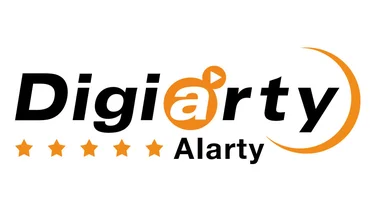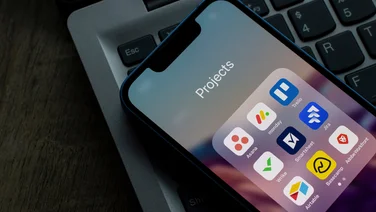To help us provide you with free impartial advice, we may earn a commission if you buy through links on our site. Learn more
- Dashlane review: What do you get for the money?
- Dashlane review: Is it good value compared to the competition?
- Dashlane review: Is it easy to use?
- Dashlane review: Does it have any other notable features?
- Dashlane review: Is it safe?
- Dashlane review: Could I get locked out of my account?
- Dashlane review: Should you buy it?

- Effortless to set up and use
- Unlimited VPN usage
- Automatic password changer
- Limited organisation options
- Less versatile than a true VPN
- User experience may change in the near future
Dashlane is a password manager that works with Chrome, Edge, Firefox and Safari. It’ll also plug into Chromium-based browsers such as Opera and Brave, and standalone apps let you manage and configure the service on Windows, macOS, Android and iOS.
Dashlane’s main job is to securely store passwords and other bits of personal data, and fill them into websites for you as needed. It can also warn you about any passwords that are weak, reused or compromised; more unusually, it can even change many of them for you too. Selected passwords and other bits of information can be shared with friends and guests, and there’s also a built-in VPN to ensure that no-one can spy on your connection.
READ NEXT: Best password manager
Dashlane review: What do you get for the money?
You can use Dashlane for free, with form-filling, password sharing and two-factor authentication all enabled. In fact, for the first 30 days you get almost all of the features of a paid-for Premium subscription. After that, though, free users are limited to storing 50 passwords, and only accessing them from a single device. Most people will need more.

To keep the Premium service going costs $40 a year (around £29), or $4 a month for commitment-phobes. This unlocks unlimited devices and passwords, up to a maximum total size of 1GB, and adds dark web monitoring and Dashlane’s built-in VPN.
For multiple users you can step up to the Family plan, which costs $60 a year – around £43 – and extends the Premium service to up to six people. Aside from being cheaper than individual licences, a Family subscription allows members to freely share credentials among themselves.
Dashlane review: Is it good value compared to the competition?
Dashlane’s free service is too limited to recommend. Since it only works on one device, you’ll still have to remember and enter your own passwords on any other computers or phones you may use. That in turn will discourage you from using complex, unique passwords, so you’ll miss out on much of the benefit of a password manager.
To be fair, this restriction isn’t unique to Dashlane – LastPass’ free plan is similarly limited. However, Bitwarden works across all your devices for free, making that a much better option for the cost-conscious.
Still, compared to Dashlane’s commercial rivals, the Premium subscription is very reasonably priced. At £29 a year for a single user, it’s just a few quid more than 1Password, and around £2 less than LastPass. That’s pretty good, since Dashlane includes a VPN service that its rivals lack and lets you freely share passwords with others, which 1Password doesn’t allow for individual accounts.

The Family plan also costs much the same as the competition: at around £43, it matches 1Password and works out to just £1.20 more than LastPass for six users. Again, this includes unlimited VPN access for all users, confirming Dashlane as a winner for value.
READ NEXT: The best free VPNs for streaming and security
Dashlane review: Is it easy to use?
Dashlane is nicely beginner-friendly. When you install the desktop app, it immediately picks up any passwords saved in your web browser and lets you choose which ones to import. A click takes you to the installation page for the appropriate browser extension. The main interface has a clean, clear layout from which you can review your stored items, check the strength of your passwords and configure sharing and emergency access.
Most of the time, though, the software is almost invisible. When a web page wants you to log in, Dashlane automatically fills in your username and password and submits them, so you’re instantly authenticated without any interaction at all. If you prefer, you can disable the auto-login feature on a site-by-site basis, so you get a chance to review the page and hit submit yourself. For security’s sake, you’ll be periodically logged out and prompted to re-enter your password, or reauthenticate biometrically: you can tell Dashlane to keep you logged in for 14 days, but obviously that decision comes with certain risks.

What if you have multiple identities saved for a particular website? In that case, Dashlane presents a dropdown menu, from which you can choose which credentials you want to provide. If you’re registering with a site for the first time, you can click the little “D” icon that appears in the password field to instantly generate a secure random password.
Sharing credentials with others is a simple case of opening the desktop app, picking an item and entering an email address. Before hitting Send you can specify whether you want the recipient to have full access to the shared item, or whether Dashlane should log them in without revealing the details. If the recipient isn’t already a Dashlane user, they’ll receive an email prompting them to sign up for an account in order to access whatever you’ve shared.
Dashlane even manages to streamline the chore of updating weak passwords. The built-in password changer can automatically update your credentials across more than 300 sites; it took me two clicks to sort out my subpar passwords on EasyJet, GiffGaff, Photobox, Reddit and Vimeo. This still left numerous passwords that needed to be changed manually, but for each one the program provides a direct link to the website, so that at least sets you on the right path.
I’ve only two reservations about Dashlane’s usability. First, all stored information has to be filed in one of six preset categories – namely passwords, secure notes, personal info, payments, IDs and receipts. You can’t organise your items into custom groups, or divide them across multiple vaults as with 1Password. Actually, I don’t mind the way this keeps things simple, but others might find it restrictive.

Second, Dashlane is currently in the process of retiring the desktop app and transitioning to a fully browser-based platform. This is great news for cross-platform consistency, but right now it means the interface is in flux, and as new updates roll out during 2021, you may find that things no longer work exactly as described above.
Dashlane review: Does it have any other notable features?
Dashlane’s built-in VPN – provided by Hotspot Shield – is a valuable privacy upgrade if you’re a regular user of public Wi-Fi. You can also use it to spoof your location, with exit nodes in 26 countries including Australia, France, Germany, India, Russia and the US, and there’s no usage limit whatsoever.
Considering a regular Hotspot Shield subscription costs £60 a year on its own, this makes Dashlane look like an amazing bargain. However, the Dashlane implementation is very rudimentary, with no option to automatically reconnect or freeze internet activity if the VPN connection is lost.
Performance is also a bit of a crapshoot. The first time I tried connecting via the US I got download speeds of a dismal 3Mbits/sec; turning the VPN off and on again gave me a much smoother 35Mbits/sec. Still, for the price I can’t complain too much.
READ NEXT: The best VPNs for your Mac
Dashlane review: Is it safe?
Dashlane only stores your credentials in encrypted form, using 256-bit AES encryption. Without your master password, no-one can access your information – even if they gain access to your computer, or hack into Dashlane’s servers.

Each time you set up the service on a new device, Dashlane also emails you a unique key that needs to be entered to authorise that device. You can also choose to enable two-factor authentication, which additionally requires you to authorise new devices from your mobile phone – or, for maximum security, you can require two-factor confirmation for every login.
A thoughtful touch is that when you use Dashlane to fill in banking or credit card details, you get visual confirmation that you’re using the right account, in the form of a graphical representation of your card, with the appropriate colour and logo.
Dashlane review: Could I get locked out of my account?
If you manage to lose your master password then Dashlane’s support staff can’t help you. However, if you’ve installed the app on a mobile device, you can log in to your Dashlane account using biometric authentication, and then reset the password yourself. Just be warned that this capability isn’t enabled by default – you need to turn it on ahead of time in the mobile app settings.
Dashlane also offers a simple emergency access system, which lets you share selected credentials (or all of them) with someone else should you be incapacitated. To set this up you simply enter the email address of a trusted friend and specify a waiting period, with options ranging from 24 hours to 60 days.
The lucky recipient then receives a link, which they can click at any time to fire off an access request to your email address. If you’re around, you can deny the request, but if you don’t respond within the waiting period they’ll be granted access to all the items you specified.
Dashlane review: Should you buy it?
Dashlane has two big selling points: it’s one of the most user-friendly password managers we’ve tried, and of course that VPN is included in the price. The former makes it a great choice for less technical types, while the latter will appeal to anyone who’s particularly concerned about privacy.
Keep in mind though that the VPN is very limited in terms of configuration and technical features. You may prefer to take out a separate subscription to a full-fat VPN service – and that raises the question of whether it’s still worth paying for Dashlane, or whether the free Bitwarden will satisfy your needs.
Overall, though, Dashlane is a pleasure to use, and gives you more than its rivals for a comparable price, making it our favourite commercial password manager.






